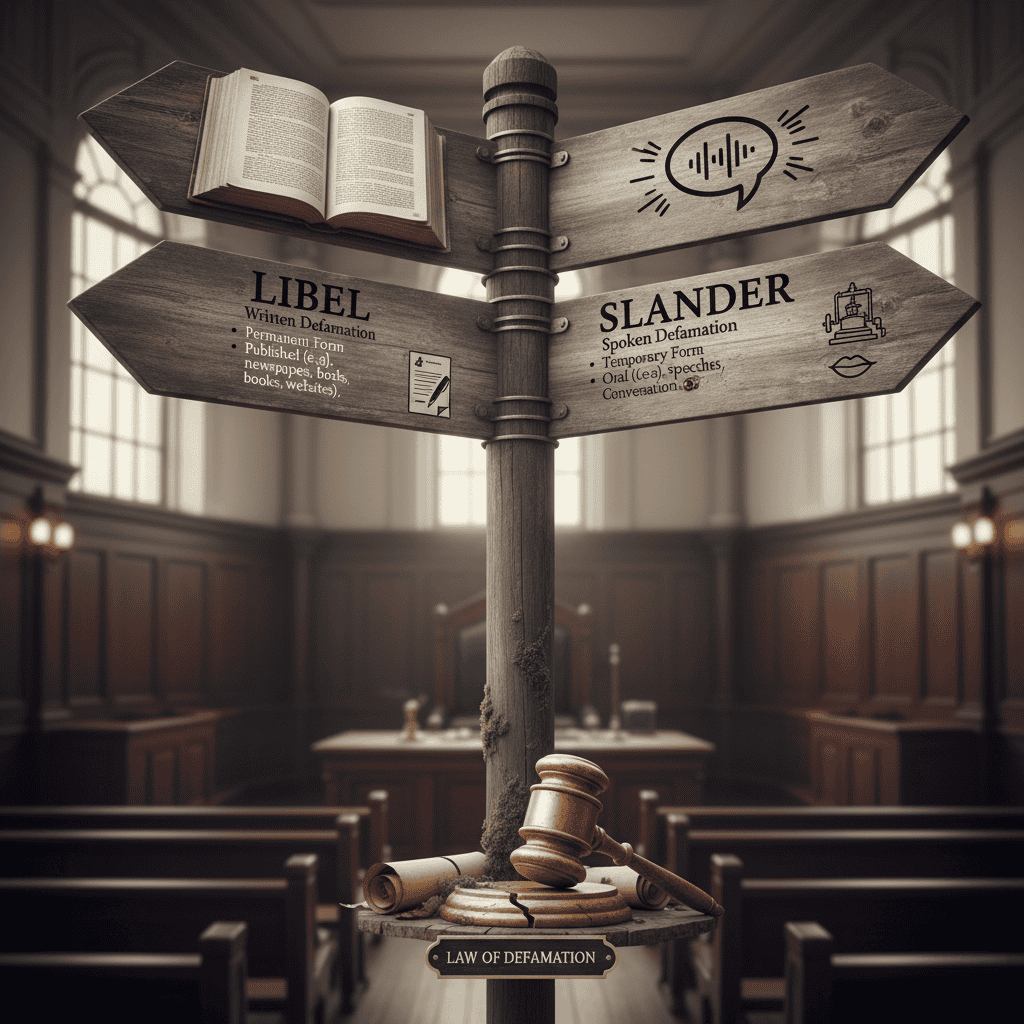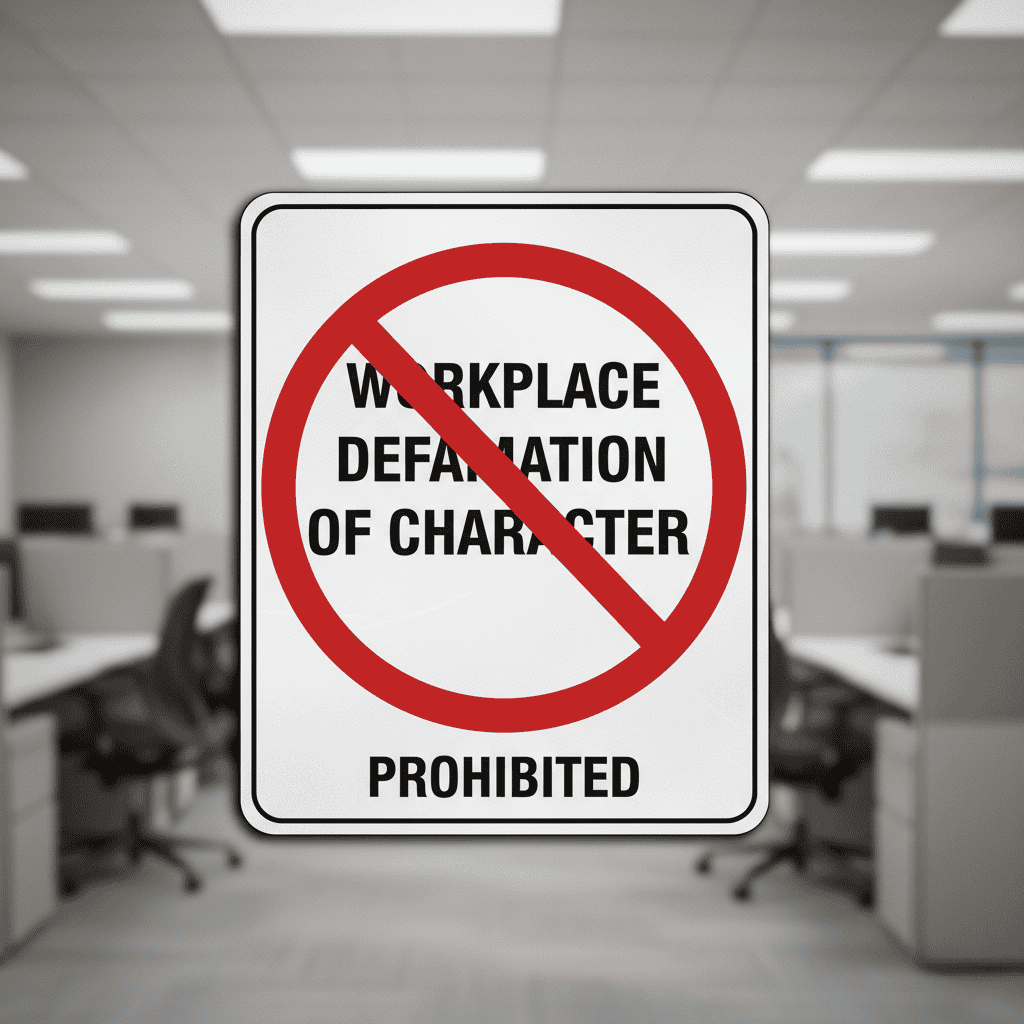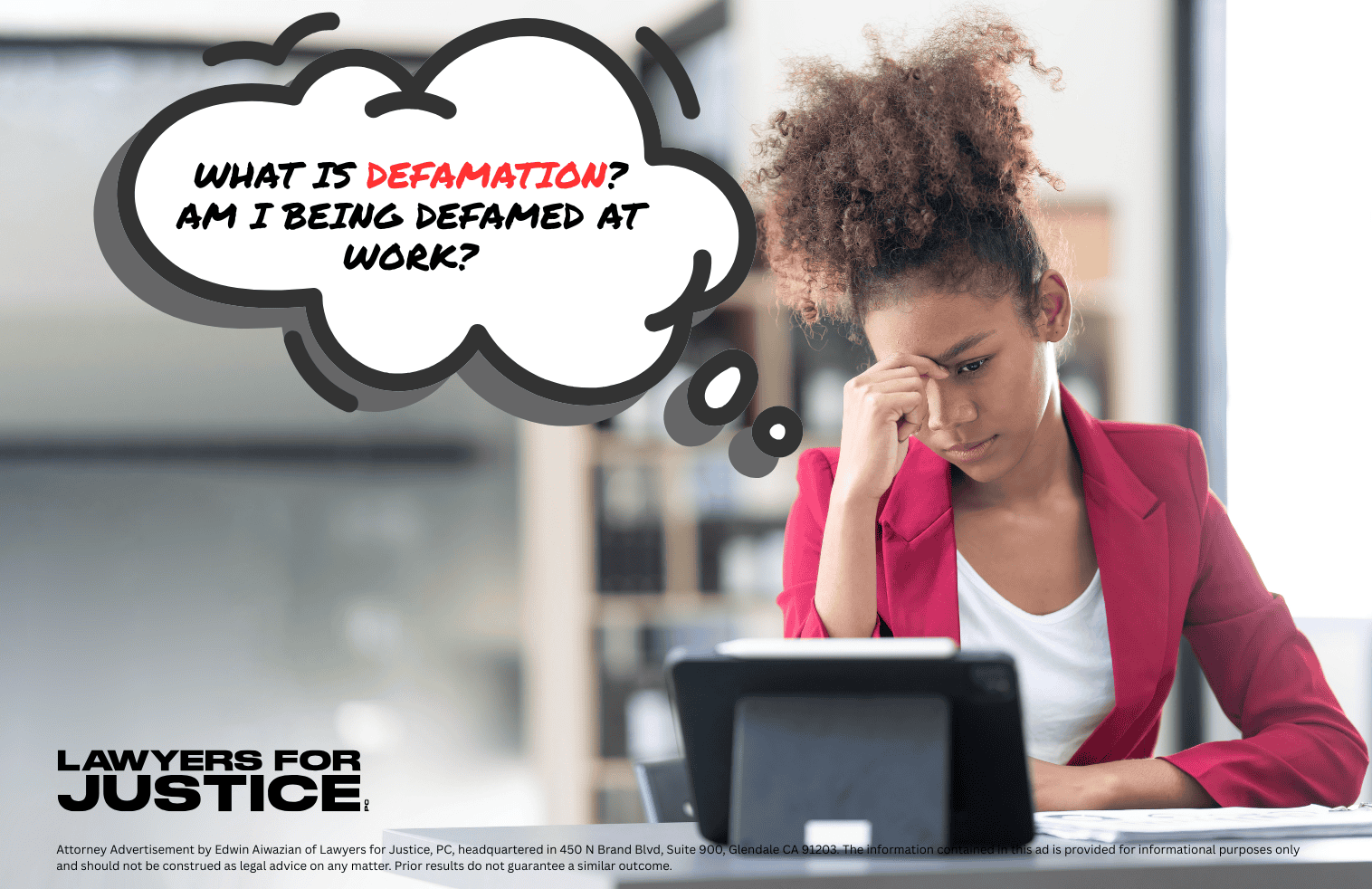Attorney advertisement by Edwin Aiwazian of Lawyers for Justice, P.C., headquartered at 450 N Brand Blvd, Glendale, CA 91203
Defamation can affect anyone—from private individuals to employees navigating workplace dynamics. Understanding what defamation is, how it works, and how it may impact your reputation is often the first step toward determining whether further action may be appropriate. This article provides an overview of defamation, including the differences between libel and slander, common defamation of character examples, and how defamation may appear in a workplace setting.
What Is Defamation?
Defamation generally refers to a false statement of fact about a person that may harm their reputation. The statement must usually be communicated (“published”) to someone other than the person it concerns, and it may need to cause some form of harm or damage. Because laws vary by state and circumstances, no single definition fits every situation, but defamation typically falls into two categories: libel and slander.
Libel vs. Slander

Libel
The term libel refers to written false statements, which may appear in:
- Emails
- Text messages
- Letters
- Online posts
- Performance reviews
- Internal memos or reports
Libel may be easier to document because written content can often be preserved as evidence.
Slander
The term slander refers to spoken false statements, which may occur through:
- Workplace rumors
- Verbal accusations
- Comments made during meetings
- Statements told to co-workers, supervisors, or customers
Slander may rely more heavily on witness testimony or notes documenting what was said and when.
Common Defamation of Character Examples

While every situation is unique, defamation may involve:
- A false accusation of theft or criminal misconduct
- Incorrect claims of violating workplace policies
- Untrue statements suggesting an employee is dishonest or unprofessional
- Negative statements presented as facts rather than opinions
- Rumors that may damage someone’s reputation or credibility
These examples may occur in social settings, online environments, or workplaces—and may have serious consequences.
Workplace Defamation

Workplace defamation occurs when false statements about an employee are communicated in a professional setting that may cause harm to their reputation, relationships, or career.
This may include statements made by:
- Supervisors
- Co-workers
- Human resources personnel
- Clients, customers, or business partners
Defamation in the workplace may contribute to job loss, limited advancement opportunities, or reputational harm. Because of these impacts, employees who believe they are being defamed at work may want to evaluate what steps they can take next.
Are You Experiencing Defamation of Character at Work?
If you believe someone at work may be spreading false statements that are harming your reputation, you are not alone. Defamation issues in the workplace can be complicated, and employees may benefit from understanding how defamation claims are evaluated, what evidence may be relevant, and how the legal process may work.
You may want to review our related article: How Do You Prove Defamation of Character at Work?. This resource offers a step-by-step outline of what may be needed to evaluate a workplace defamation claim.
Why You May Want to Speak With an Attorney About Defamation at Work
Defamation claims typically involve complex questions, including whether the statement was false, whether it was privileged, and whether it caused harm. Because these situations often depend heavily on context, an employment attorney may be able to:
- Review relevant documents, communications, and witness statements
- Help determine whether the statements may meet the criteria for defamation
- Explain how privilege may apply
- Discuss potential next steps
- Help protect your reputation and workplace rights
Speaking with a lawyer may provide clarity and help you understand your options before deciding how to proceed.
You May Want to Speak With Lawyers for Justice, P.C.
If you believe you may be experiencing defamation of character at work, you may want to contact Lawyers for Justice, P.C. for a free, confidential consultation. Our team may be able to review your situation and explain what legal options may be available under California law. You can call 818-JUSTICE today to speak with our team. Or, click here and fill out a brief form for a complimentary consultation. We are here to help you understand your rights and determine what steps you may want to take moving forward.
Disclaimer:
This article is for general informational purposes only and does not constitute legal advice. Reading this article does not create an attorney-client relationship. Defamation issues are highly fact-specific, and you may want to speak with an attorney about your particular situation.
Attorney advertisement by Edwin Aiwazian of Lawyers for Justice, P.C., headquartered at 450 N Brand Blvd, Glendale, CA 91203
Think you deserve justice?
-
Get a Free Case Evaluation
-
Retain Service with No Upfront Cost
-
Get the Justice You Deserve
-
No Win, No Pay









